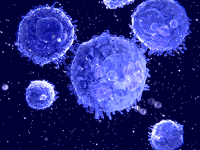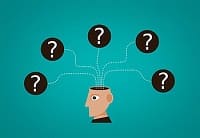
May 8, 2020
Measuring the impact of the COVID-19 pandemic on front-line workers is critical to developing interventions to support them. Health care workers (HCWs), including physicians, nurses, clinical and non-clinical support staff, face physical and emotional stress that can have significant and lasting impact on their mental health and well-being. A new study of over 30,000 HCWs shows that at least 20% are experiencing depression and anxiety, and nearly 40% are experiencing difficulties sleeping. This noteworthy prevalence highlights the need to identify individuals at risk and provide necessary mental health support. To learn more, see the study in Brain, Behavior, and Immunity.

May 7, 2020
Many people are experiencing disrupted sleep schedules and habits as a result of physical distancing requirements under COVID-19. To measure how these disruptions are affecting adolescents, researchers analyzed data from over 350,000 teenagers around the world. The results show that reduced sleep is associated with a 55% increase in “mood deficits,” including depression, anxiety and anger. The researchers recommend that parents and guardians emphasize the importance of regular sleep habits, including monitoring the use of technology before bed. To learn more, see the study in Sleep Medicine Reviews.

April 21, 2020
Most treatments for conditions like anxiety, depression and obsessive-compulsive disorder (OCD) target chemical activity in the brain, but a new study supports targeting the immune system. Researchers discovered that mice with high levels of a protein called Immuno-moodulin, or Imood, experienced significant anxiety. Treating those mice with an antibody against Imood caused the symptoms to disappear in a few days. Researchers have now shown that people with OCD have levels of Imood up to six times higher than unaffected people and are working to develop an antibody therapy for future study. To learn more, see the study in Brain, Behavior, and Immunity.

March 30, 2020
The National Institute of Mental Health (NIMH) established the Fast-Fail Trials program to reduce barriers to developing new psychiatric treatments. A fast-fail trial allows researchers to quickly test a potential target for treatment before investing resources into a full drug trial. Researchers have published the results of a fast-fail trial for the first time, showing that the kappa opioid receptor (KOR) mechanism plays a role in reward and pleasure. This evidence will support the development of new treatments for anhedonia — the “loss of pleasure” that is common with many mood and anxiety disorders. To learn more, visit the NIMH website.

March 7, 2020
Although most individuals with serious mental illness (SMI) can live independently and manage their symptoms with outpatient support, some require longer-term care in an inpatient setting. A new study shows that Cognitive Adaptation Training (CAT), a personalized intervention program delivered by trained nurses, can effectively support recovery and restore some independence for these individuals. After 12 months of treatment, individuals who received CAT showed sustained improvements in daily functioning, executive functioning and visual attention. As a low-cost intervention for a population with limited evidence-based treatments, CAT may be a valuable addition to recovery-oriented care for the SMI community. To learn more, see the study in Schizophrenia Bulletin.

February 11, 2020
New research from the U.K. shows a strong relationship between early-life physical activity and depressive symptoms later in life. Using simple wearable technology, researchers captured more reliable data than previous studies that depended on self-report. More than 4,000 participants provided physical activity data at ages 12, 14 and 16 and then completed a depression screening at age 18. The data showed that every additional hour of light physical activity per day at age 12 was associated with a 10% reduction in depressive symptoms at age 18. To learn more, see the article from The Lancet Psychiatry.

February 3, 2020
A new study shows that nurses are at an increased risk of suicide compared to the general population, and this increased risk has been present since at least 2005 (the earliest year that comprehensive data is available). Nurses who died by suicide were more likely than the general population to have known stressors at work and were more likely to complete suicide by medication overdose. These factors highlight the importance of workplace screening and wellness programs. To learn more, see the article from Worldviews on Evidence-Based Nursing.

January 29, 2020
Many people who recover from major depression through standard care models still experience lingering issues with sleep, energy and worry. To support long-term wellness, researchers created an online version of mindfulness-based cognitive therapy called Mindful Mood Balance (MMB). In a randomized trial, individuals who engaged with the MMB program in addition to conventional care experienced greater improvement in depressive and anxious symptoms, higher rates of recovery and higher quality of life compared to individuals who only received conventional care. To learn more, see the study in JAMA Psychiatry.

January 22, 2020
The National Institute of Justice (NIJ), a division of the U.S. Department of Justice, has announced the availability of $6 million in grant funding for research on reenty initiatives. Reentry initiatives provide social services, skills training and connections to treatment for people returning to the community after a period of incarceration. Successful initiatives improve health and social outcomes and reduce future criminal justice involvement. By studying current initiatives, NIJ hopes to identify best practices that can be applied in more communities. Applications for grant funding are due on May 5, 2020. To learn more, see the announcement from NIJ.

January 14, 2020
The Center for Collegiate Mental Health (CCMH), a project facilitated by researchers at Penn State University, has released their 2019 Annual Report describing the landscape of counseling services at colleges and universities across the country. For the first time, CCMH has included a metric to measure campus counseling centers’ caseloads. Using this new metric, the report shows that higher caseloads are associated with fewer and less frequent appointments. Clients also report significantly less improvement in depression, anxiety and distress at high-caseload centers compared to low-caseload centers. To learn more, see the full report on the CCMH website.
NAMI HelpLine is available M-F, 10 a.m. – 10 p.m. ET. Call 800-950-6264,
text “helpline” to 62640, or chat online. In a crisis, call or text 988 (24/7).